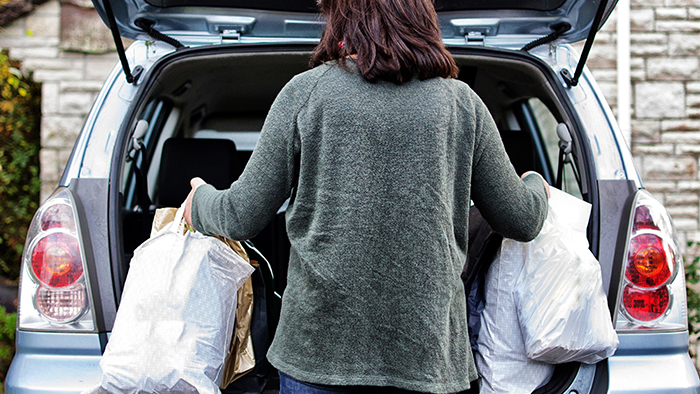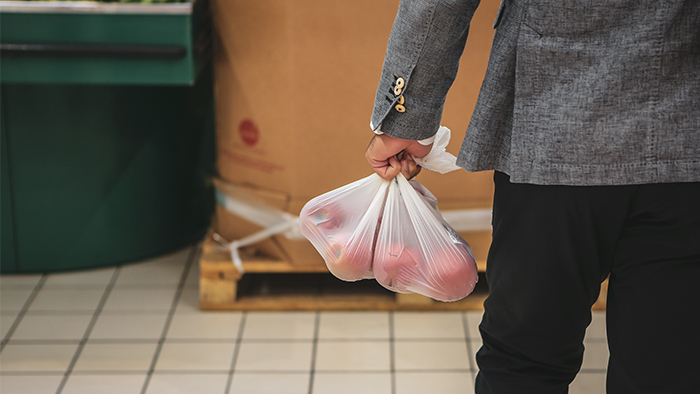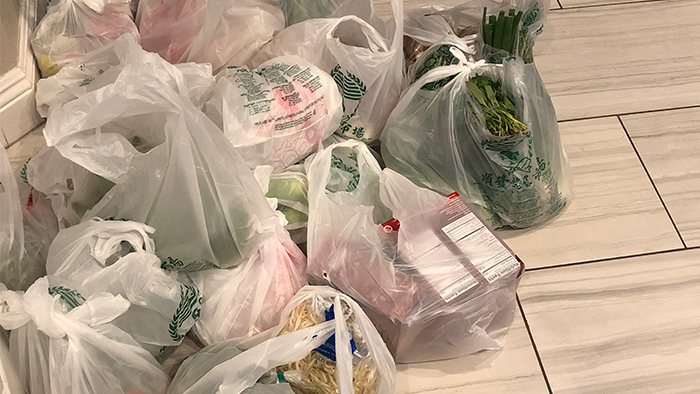Consumer Bag FAQ
- By [ Kaela Martins ]
- 12/10/2019

1. How can my company keep track of the plastic bag legislation that is being passed at state and local levels?
Because much of the legislation around plastic consumer bags is at the local level and there are frequent changes, tracking the requirements can be challenging, and there is no one resource with all the requirements. The Retail Compliance Center (RCC) has a compliance matrix that provides an overview of state and local consumer bag legislation across the United States for both paper and plastic bags. However, because of the number of jurisdictions and frequent changes to the regulations, the RCC matrix may not be complete. Many retailers use multiple resources, as well as information reported from local stores and regional staff, to track the information.
For specific answers on the interpretation of existing or proposed plastic bag legislation, particularly at the city or county level, consider reaching out to the retail trade association in that state that may be tracking the issue. The Council of State Retail Associations has a directory of state associations. RILA also has relationships with state retail association staff and can often make an introduction. Contact erin.hiatt@rila.org for more information.
2. Does RILA have a viewpoint on plastic bag legislation?
Yes, retailers may contact erin.hiatt@rila.org for more information.
3. Is there one type of reusable bag that will fit the requirements of all plastic bag legislation?
The short answer is no. Legislation on consumer bags is set at state and local levels and, as a result, there is no "one size fits all" bag that would meet the requirements of all plastic bag legislation across the United States. While there may be some overlap with common requirements, cities and counties often develop their own unique requirements.
Common specifications for reusable bags that have been passed in plastic bag legislation include:
- The number of uses
- Durability/use performance
- Recycled content
- Ability to clean
- Material type
4. What is the most sustainable type of reusable bag?
There is no one definitive answer to this question. Retailers have noted, while looking for an ideal reusable bag, that the Life-Cycle Assessment (LCA) of different reusable bag materials (e.g. cotton, canvas, recycled PET, etc.), can vary but that the most important factor may be choosing a bag that consumers are most likely to consistently remember. This makes it hard to determine the most sustainable option for replacing single-use plastic bags.
Moreover, the most sustainable bag material as identified by an LCA may not be the bag consumers are most likely to view as more sustainable, be the least environmentally harmful should it become litter, or be most likely to be properly recycled, depending on local infrastructure.
If reusable bags of a thicker plastic are chosen, companies have noted that the bag benefits from having a clear indication that it is reusable because otherwise consumers may treat it the same as a thin plastic single-use bag.
Retailers are encouraged to consider what factors are driving their reusable bag strategy and their desired outcome to determine the right bags to offer.

5. Are compostable bags a sustainable alternative to plastic bags?
There are significant challenges associated with replacing traditional plastic bags with compostable carry-out bags. Compostable bags often require an industrial-level composting facility and high temperatures to decompose correctly – conditions not available in landfills. Few jurisdictions have these industrial facilities and it can be costly to ship bags to facilities. If compostable bags become litter, they pose the same environmental challenges as traditional plastic bags. And if consumers put compostable bags in with other plastic bags at in-store drop-offs, the compostable material can contaminate film plastic recycling streams.
6. Are paper bags a sustainable alternative to plastic bags?
Paper bags are biodegradable and more practically recyclable than traditional plastic bags. However, producing paper bags requires significant amounts of water, energy and trees. Key elements to the level of sustainability of a paper bag are the sourcing (i.e., from sustainably managed forests and made with recycled content), if the bags are reused, and if they are recycled or composted versus landfilled.
7. Do any closed-loop programs exist for plastic bags?
Closed-Loop recycling refers to the collection of post-consumer waste that is collected, recycled and made into new products. There are several closed-loop programs that have been developed for plastic bags. A few examples include:
- Novolex's Bag-2-Bag
- Trex recycling offerings
- Avangard Innovative: Avangard shreds polyethylene (PE) material, melts it into pellets and sells to companies in the U.S. and abroad to make new plastic products.
- Buy Recycled Plastics Products Directory: This directory includes products with post-consumer resin (PCR) content, which includes a few bags.
8. How do we increase customer use of reusable bags at our retail locations?
One of the most common barriers to customers not using reusable bags is leaving them in the car. Some retailers use 'don't forget your reusable bags'-type signage in key areas of the store (by the entrance, on carts, etc.) in addition to selling them in store. Other tactics include:
- Offer a discount for using a reusable bag
- Ask customers at check out (verbally or via touchscreen) if they need a bag
- Charge for single-use bags
- Not providing single-use bags
The Retail Council of Canada partnered with British Columbia to produce resources to help reduce the distribution of single-use shopping bags.
9. How can I start a plastic bag recycling program?
In some states, legislation requires retailers to take back and recycle plastic bags. Other retailers participate in take-back programs voluntarily to increase waste diversion. One challenge is that plastic film can generally not be mixed with other plastic recycling as it gets caught in the equipment so retailers must find a film recycler to take the material. The Flexible Film Recycling Group (FFRG) has a list of potential recyclers. Plastic film recycling not only includes thin-plastic bags, but other polyethylene (PE) packaging such as:
- Garment shipping bags
- Produce bags
- Newspaper bags
- Bread bags
- Dry cleaning bags
- Zip-top bags
- Bubble wrap and air pillows
- Product overwrap
The American Chemistry Council provides information on how thin plastic material is recycled. Often the plastic material collected through these take-back programs can be recycled into several products, such as small pellets which are used to make new bags, containers, crates, etc. Question 7 provides more information on closed-loop recycling programs.
10. Can all plastic be recycled together?
No. Various plastics are used in the retail space that each have different recyclability, chemical properties and applications. The American Chemistry Council provides an overview of the 7 major plastics that exist, their functionality and use. To determine the recyclability of certain plastics, consult with the local municipal recovery facilities (MRFs) that would handle the material.
Tags
-
FAQ



